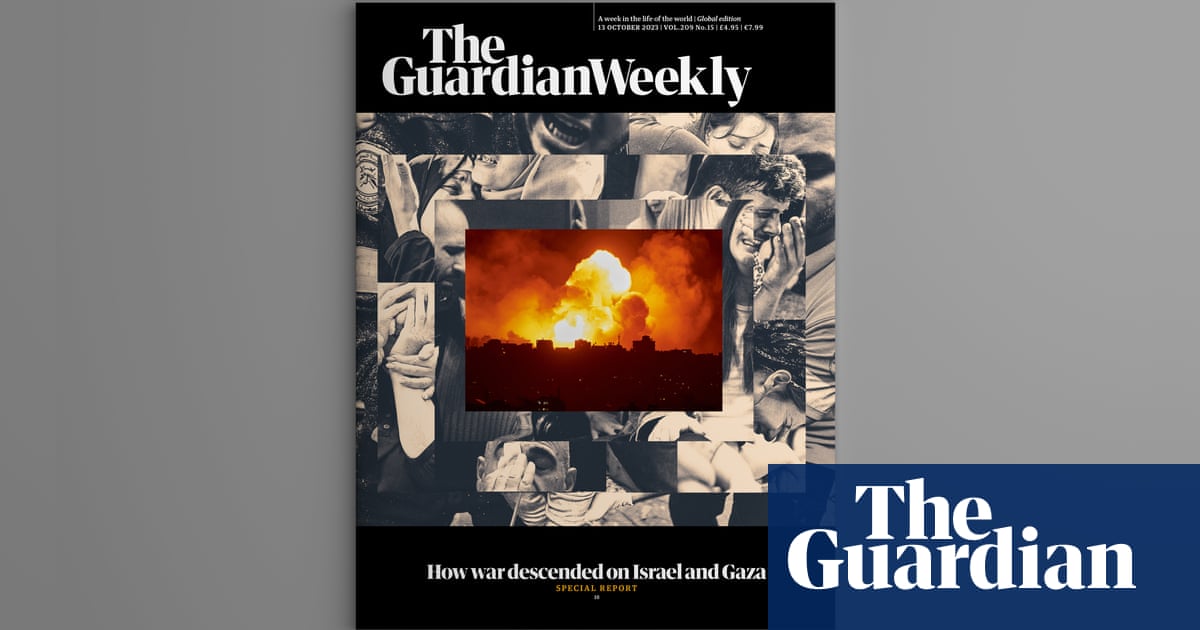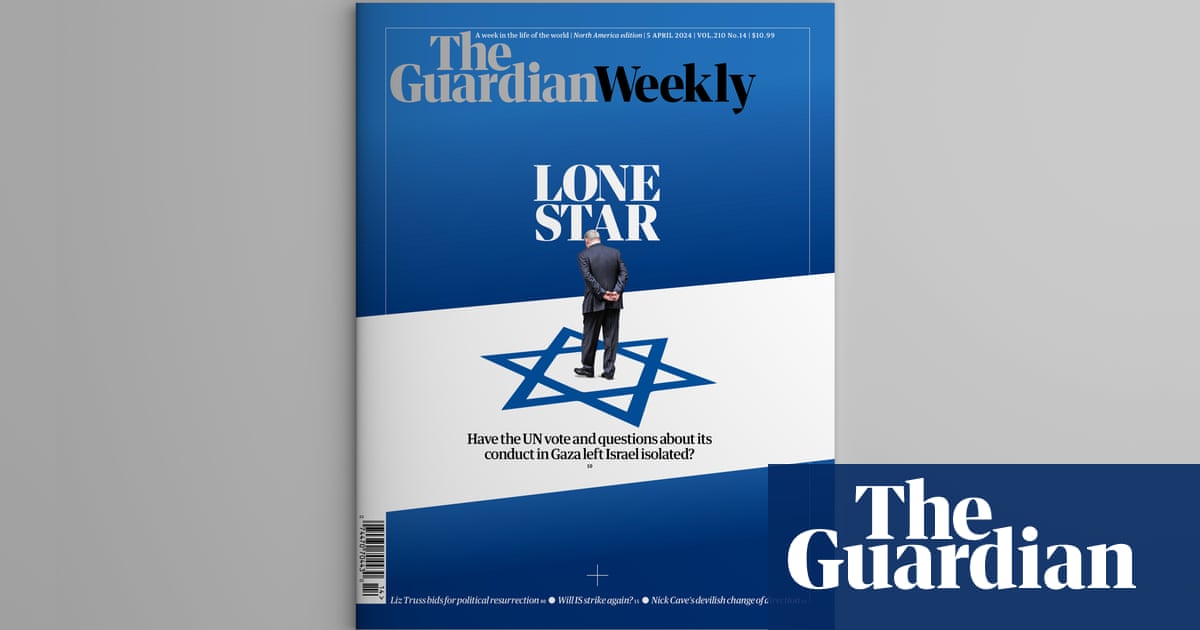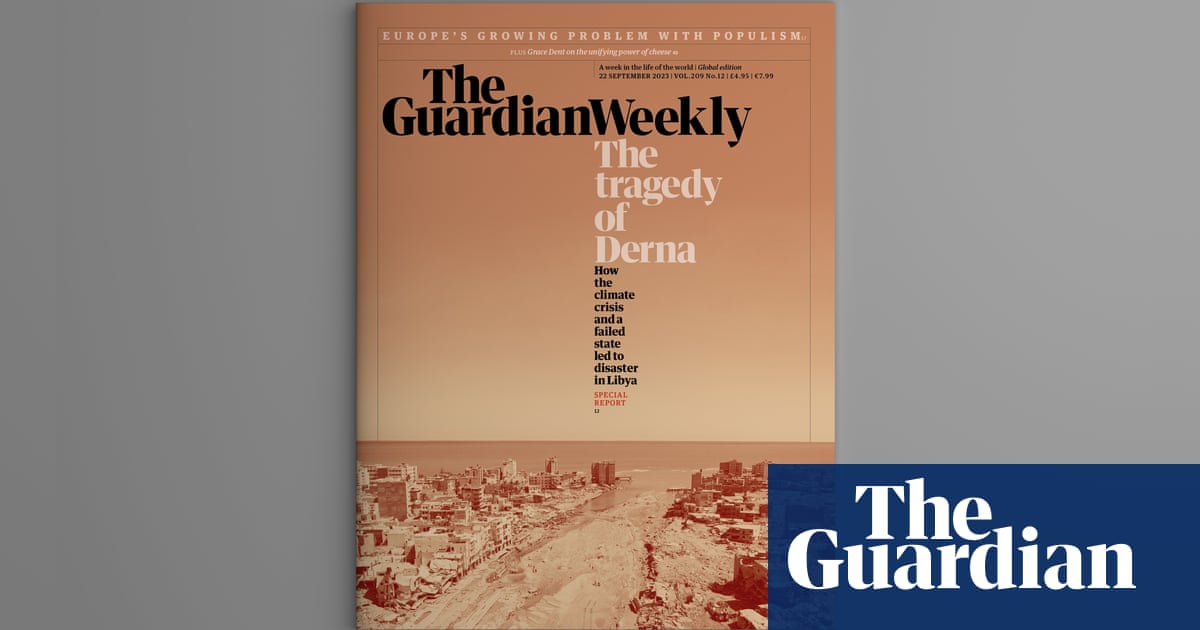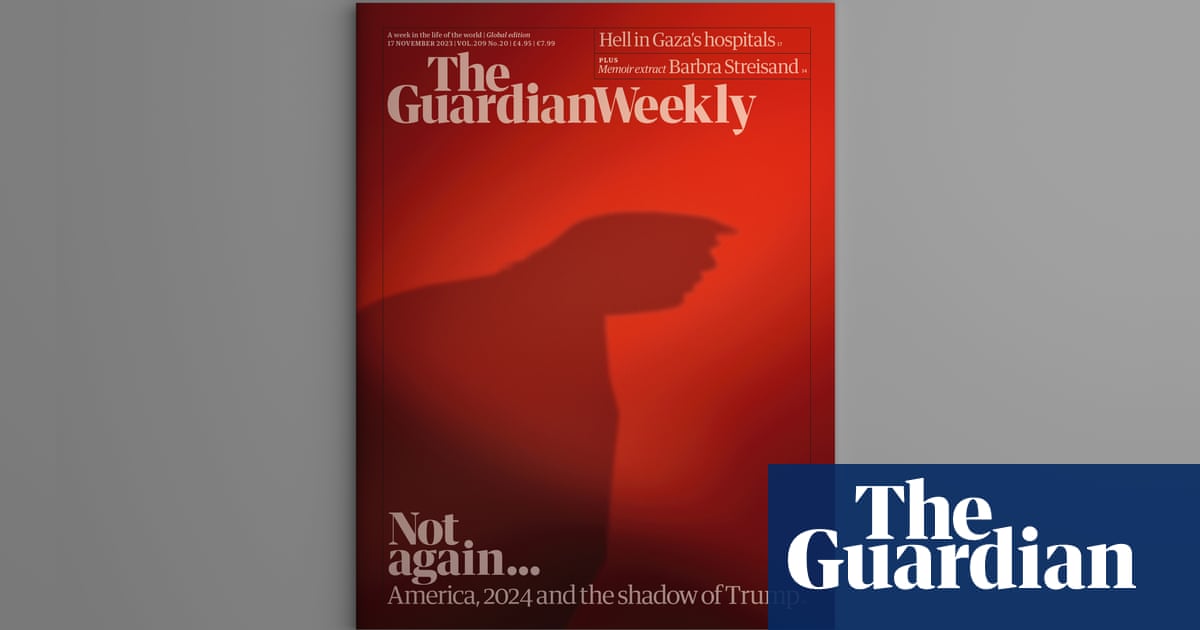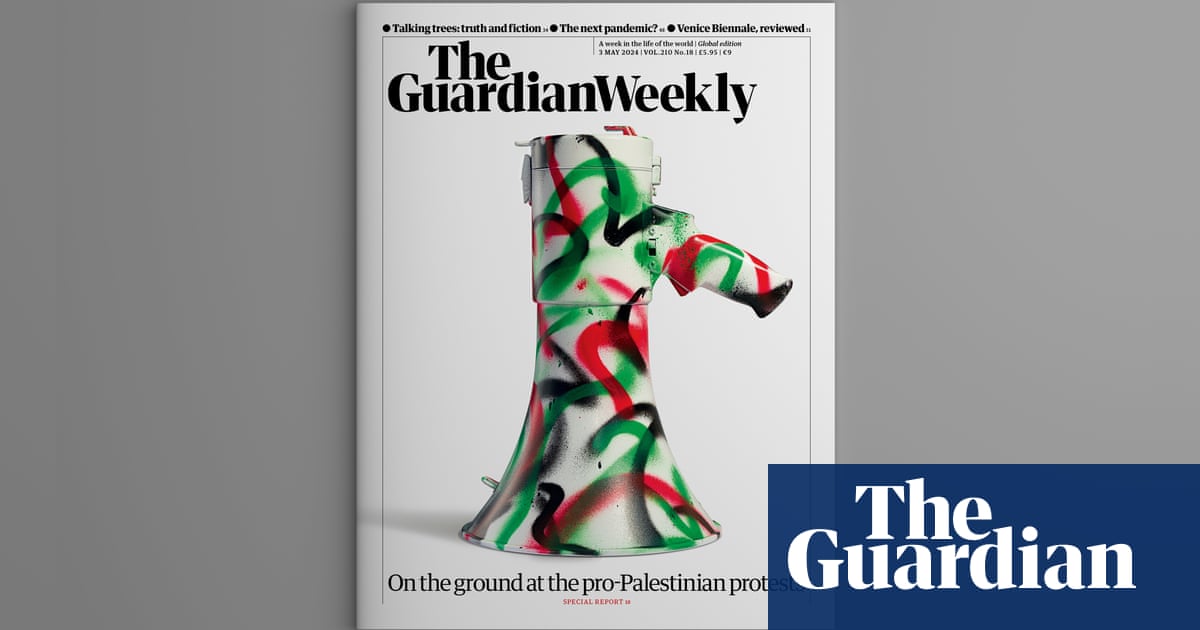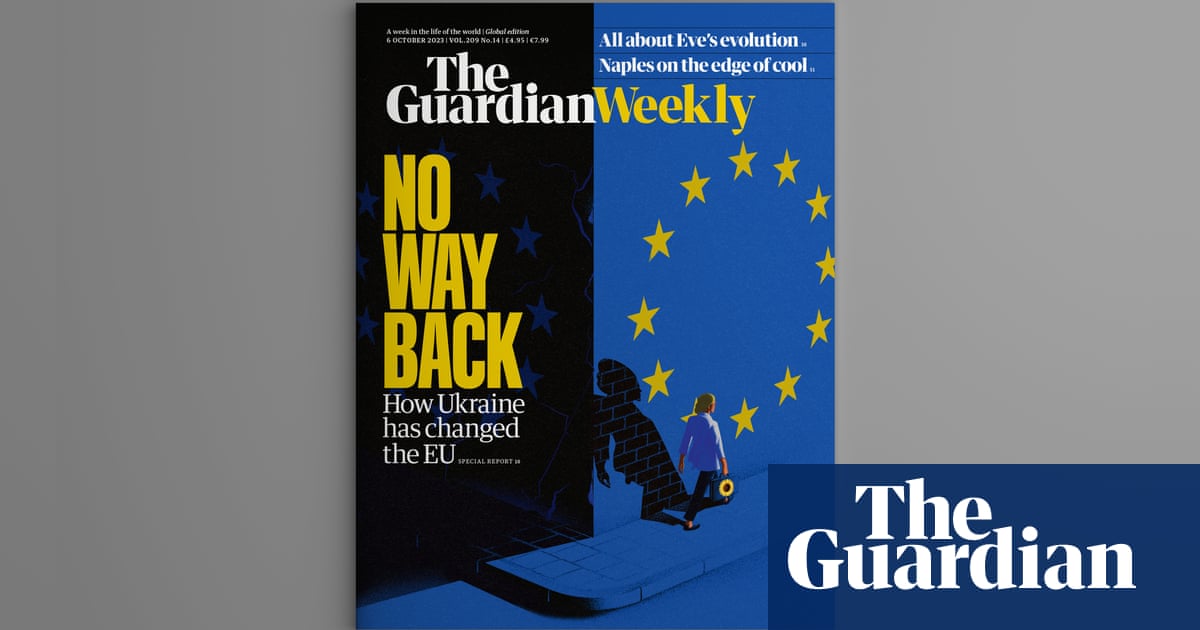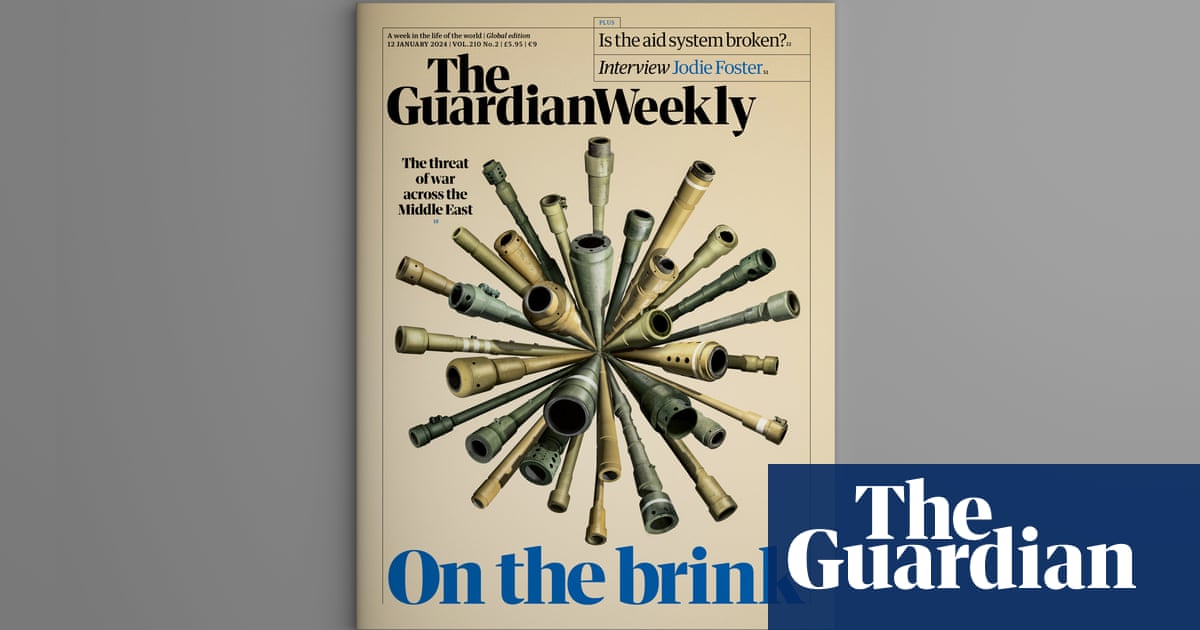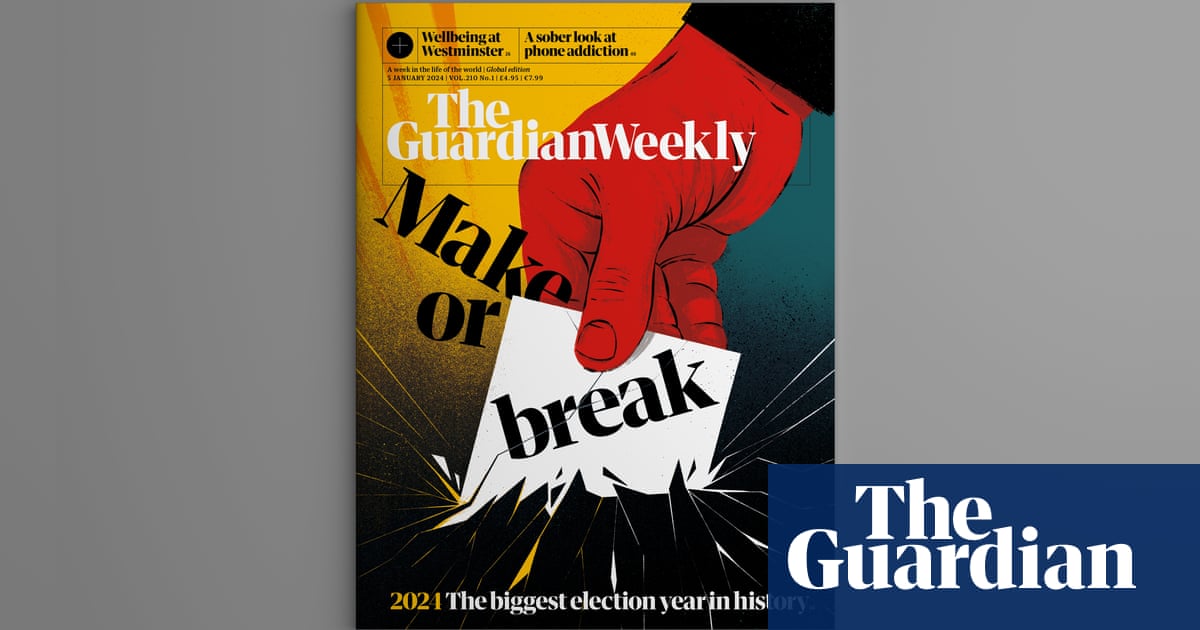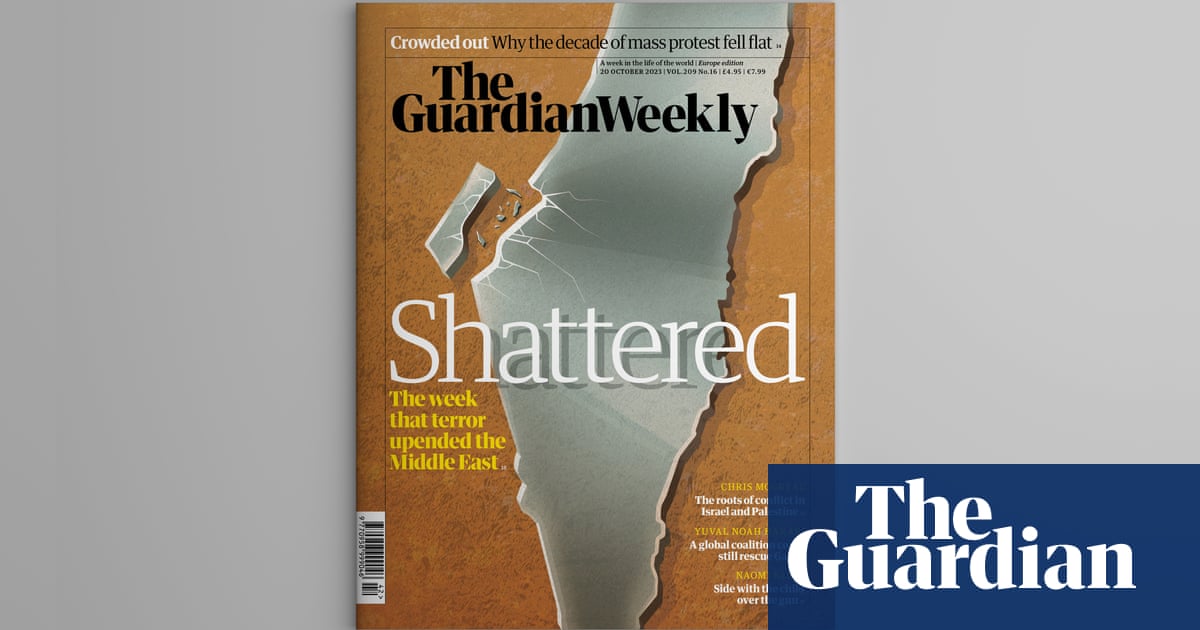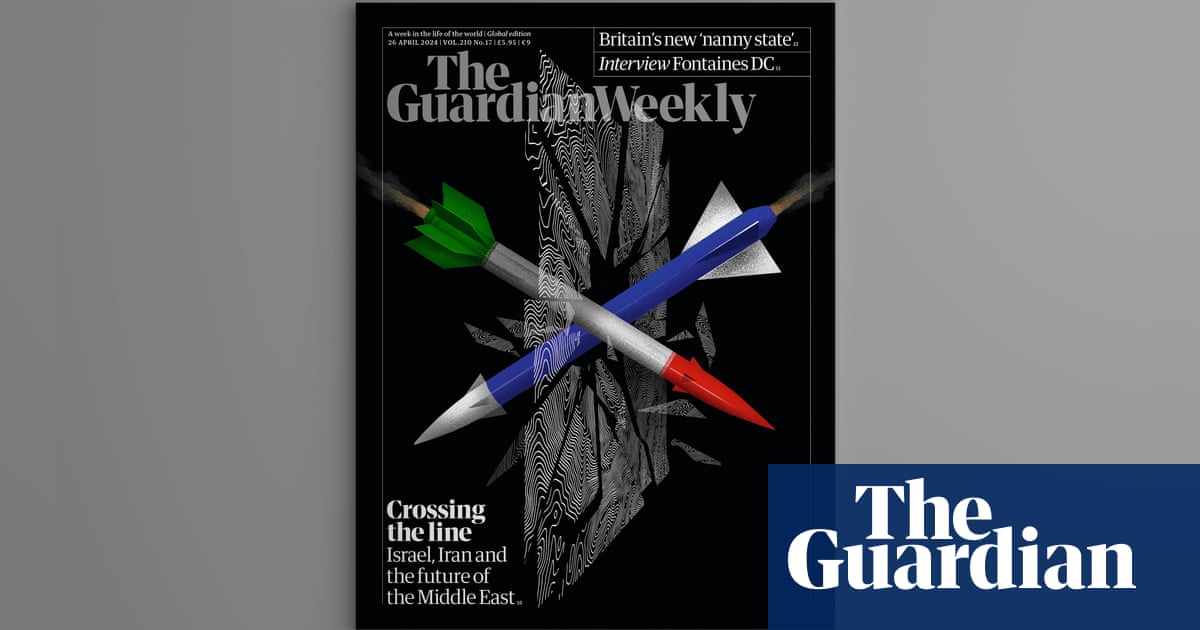
The tit for tat strikes by Israel and Iran last week may not – yet – have led to all-out regional war. But the direct attacks on each other’s territories have crossed a significant red line and presented the surrounding Gulf states with a serious security dilemma. What the likes of Saudi Arabia and Jordan do next could go a long way to deciding the outcome of the crisis.
The key question now, as Patrick Wintour outlines for our big story this week, is whether the Sunni monarchies fear Iran and its proxies more than they detest Israel and the damage it is inflicting on Gaza.
Then Peter Beaumont analyses Israel’s attrition on a growing number of fronts – not least at home, which could yet prove to be the most problematic of all.
Get the Guardian Weekly delivered to your home address
Five essential reads in this week’s edition
1
Spotlight | Paris goes for gold
With three months to go, is the French capital ready for the Olympic Games? Kim Willsher reports.
2
Environment | How Wellington brought back its birds
As nature falls silent in most cities around the world, New Zealand’s capital has been transformed by the sound of native birds returning to the dawn chorus, finds Eva Corlett
3
Feature | Britain and the criminal justice bill
It’s three decades since the UK government’s attempt to ban raves radicalised an oddball coalition of dance fans, squatters and ‘new age’ travellers. Dorian Lynskey finds out what became of the protesters who tried to kill the bill.
4
Opinion | America and the world economy
The US-dominated era of globalisation is drawing to an end – and the historical portents aren’t great, argues economics editor Larry Elliott.
5
Culture | Fontaines DC go large
The post-punk rockers from Dublin are finalising a new album that could put them on the road to big arena fame and success. Rachel Areosti gets the inside track.
What else we’ve been reading
I enjoyed Emma Brockes’s opinion piece about Alex Garland’s new film, Civil War (after seeing it last week). I thought the film was excellent. When I watched it I assumed its message was that during war – to ordinary people caught amid the chaos – the political reasons for the conflict can feel distant, unclear and vague, despite the violence and chaos of it destroying their everyday lives. But Emma’s piece was an interesting reminder that the timings and contexts for film releases matter and it gave me a totally different perspective on the lack of clear politics in the film. Jemima Luscombe, Guardian Weekly business manager
As a lifelong Manchester United fan, I really enjoyed Jonathan Liew’s take on our hollow FA Cup semi-final victory over Coventry at the weekend. The article perfectly encapsulates the cruelty of football, passion for the game and United’s consistent ability to concede late on – Fergie time in reverse, if you will. Eimhin Behan, marketing executive
Other highlights from the Guardian website
Audio | The chilling policy to cut Greenland’s high birthrate
Video | Buried: how we choose to remember the transatlantic slave trade
Gallery | The origin of all things: Kyotographie 2024 – a photo essay
Interactive | UK election opinion poll tracker: Labour leading as vote looms
Get in touch
We’d love to hear your thoughts on the magazine: for submissions to our letters page, please email weekly.letters@theguardian.com. For anything else, it’s editorial.feedback@theguardian.com




